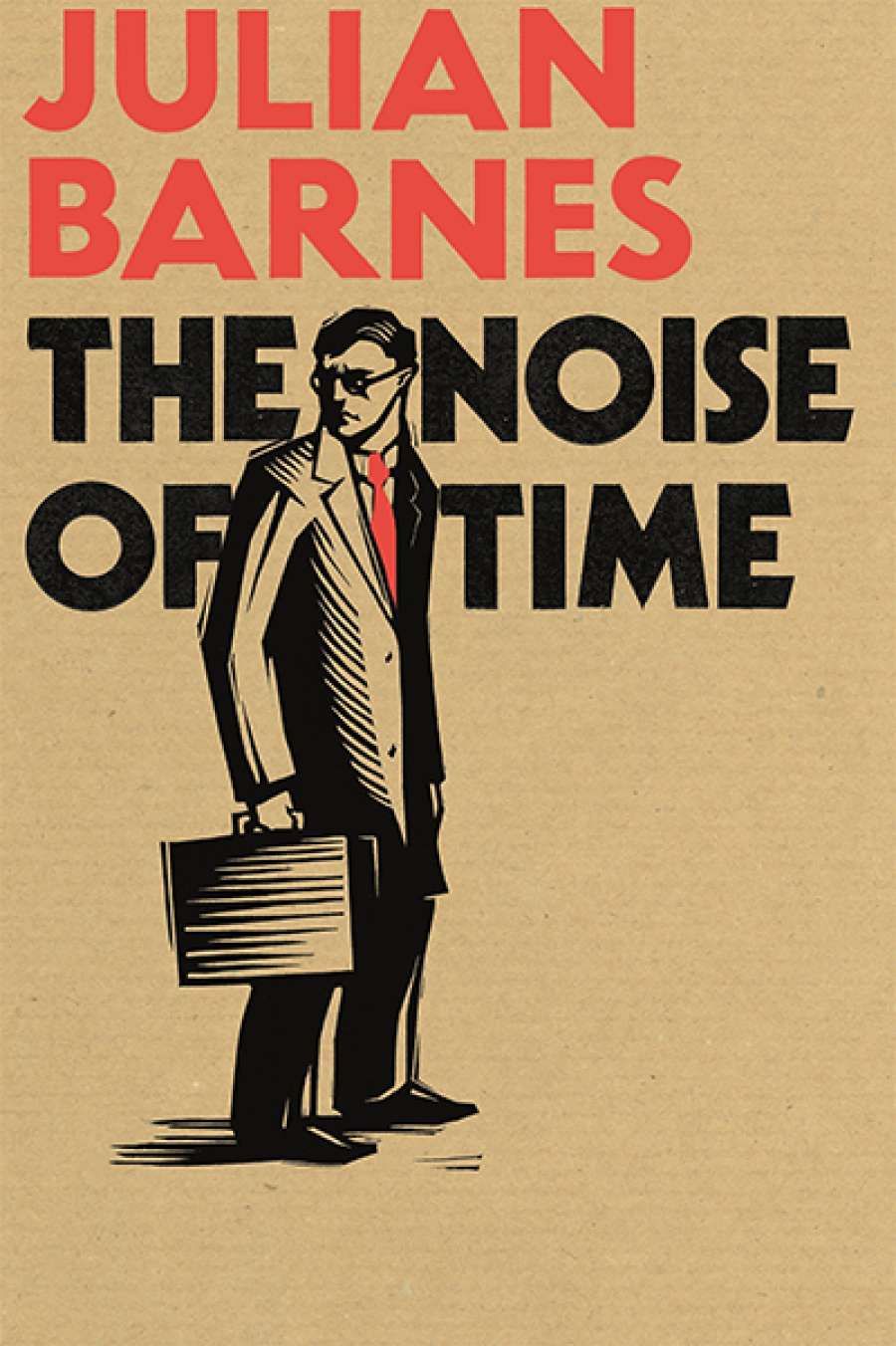
- Free Article: No
- Contents Category: Fiction
- Custom Article Title: Andy Lloyd James reviews 'The Noise of Time' by Julian Barnes
- Book 1 Title: THE NOISE OF TIME
- Book 1 Biblio: $32.99 hb, 184 pp, 9781910702604
Shostakovich's childhood was comfortable enough, but things changed with World War I and the Russian Revolution. In 1919 he was admitted to the Petrograd Conservatory. Seven years later, his first symphony was performed with a success that brought him international renown.
 Portrait of Dmitri Shostakovich by Tahir Salahov, 1976 (via Wikimedia Commons)Already there was a degree of political criticism of his work, but the real disaster occurred in 1936 when Shostakovich alienated the USSR leadership and was threatened with imprisonment, a threat that dogged him for the rest of his life. At issue here was his precocious opera Lady Macbeth of the Mtsensk District (1934, revised in 1962), which Stalin despised. The timing could not have been worse. Stalin had just launched the Great Purge, in which hundreds of thousands (possibly millions) of people were murdered, artists and intellectuals among them. The combination of World War I, revolution, and political terror was ripping Soviet life apart. As Barnes notes, 'Mother, daughter-in-law, granddaughter: three generations of women. Such households were increasingly common in Russia in those days.' The threat to Shostakovich's life was very real.
Portrait of Dmitri Shostakovich by Tahir Salahov, 1976 (via Wikimedia Commons)Already there was a degree of political criticism of his work, but the real disaster occurred in 1936 when Shostakovich alienated the USSR leadership and was threatened with imprisonment, a threat that dogged him for the rest of his life. At issue here was his precocious opera Lady Macbeth of the Mtsensk District (1934, revised in 1962), which Stalin despised. The timing could not have been worse. Stalin had just launched the Great Purge, in which hundreds of thousands (possibly millions) of people were murdered, artists and intellectuals among them. The combination of World War I, revolution, and political terror was ripping Soviet life apart. As Barnes notes, 'Mother, daughter-in-law, granddaughter: three generations of women. Such households were increasingly common in Russia in those days.' The threat to Shostakovich's life was very real.
There were no surprises in the tactics used to break people. A servile press, nocturnal disappearances ('they always came for you in the night'), invented criminal charges, the silencing of friends, family, and supporters: all had their place. Barnes evokes them deftly, to palpable effect. Fear of an almost endless list of possible punishments is understandable, but what all tyrants know best is that the real killer is anxiety: What better or more corrosive weapon can there be? Shostakovich was by nature a highly anxious man, and the leaders knew it.
It is remarkable how much is contained in 184 pages. Along with the shifts in time, the speed of the narrative makes you feel the graphic force of panic, the power of a guilty conscience, the recognition of one's own cowardice (or is it courage?). Yet laced through the book are moments of humour and warmth, with hints of a larger idea that will only be resolved at the end of the book.
 Julian Barnes (photograph by Alan Edwards)And of course there is the music itself that lay at the heart of the matter. Barnes explores the arguments around the meaning of art, the responsibility of the artist, the temptations and threats strewn in the artist's way, and the price that has to be paid for whichever pathways are chosen. He takes you through the key works that either threatened Shostakovich's life or appeased the leadership. Stalin wanted music that was optimistic, Shostakovich wrote music that expressed what he really saw and felt.
Julian Barnes (photograph by Alan Edwards)And of course there is the music itself that lay at the heart of the matter. Barnes explores the arguments around the meaning of art, the responsibility of the artist, the temptations and threats strewn in the artist's way, and the price that has to be paid for whichever pathways are chosen. He takes you through the key works that either threatened Shostakovich's life or appeased the leadership. Stalin wanted music that was optimistic, Shostakovich wrote music that expressed what he really saw and felt.
Even after Stalin's death in 1953, Shostakovich – a mascot for Soviet art – remained under pressure. He was laden with awards and his music was renowned (and performed) around the world. The new regime had multiple uses for him. The last part of the book is a tour de force, the final paragraph quite beautiful. The Noise of Time begins with a puzzling short story about three men at a railway station in the middle of nowhere. It ends with a reprise of that story, but changed now – all has become clear. This is a fine book and a timely one as governments seek greater control of the arts, sciences, and media to achieve greater control of the citizenry. Julian Barnes has given us a story to be admired for its far-reaching importance.


Comments powered by CComment